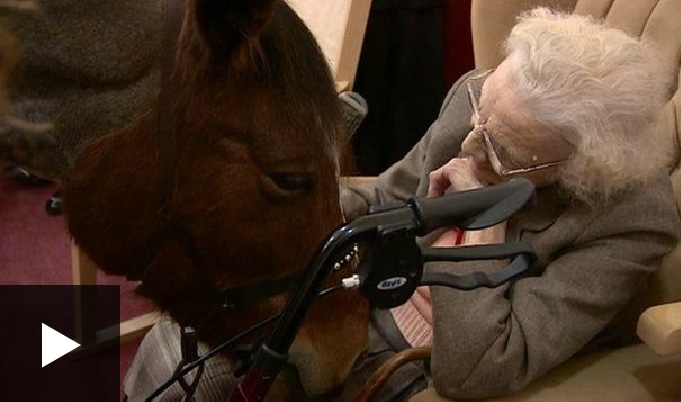As a nation, British people are known as some of the most caring and loving pet owners. According to the Pet Food Manufacturers’ Association highly regarded yearly Pet Population report, this year alone over 40% of UK households have a combined total of around 57 million pets. Apparently indoor and outdoor fish are the most popular pets, followed by dogs, cats and a variety of small animals.
These statistics are very encouraging however it does make the results of a survey conducted in 2014 by Stay in my Home very upsetting. The survey identified that over two million British citizens know an elderly person who has had to put their affectionate pet to sleep when moving into a residential care home.
In an article in Vet Times, the organisation’s chairman said that the aim of the theme was to encourage people not to overlook the fact that when an owner is no longer able to care for their beloved pet, they may need help to rehome their pet.
Fortunately, there are many pet friendly retirement and care homes in the UK which may help avoid the needless trauma of having to rehome your pet.
There are also many care homes and organisers who can arrange animal therapy experience visits to residents, such as mobile animal zoos and the likes of Rupert Whalley the 14 hands high horse in Shropshire who is a hit with many and especially with people who have dementia.

Animal visits in residential homes have been known to reduce staff stress levels whilst also aiding residents’ relationships, verbalisation skills and treatment results. Such visits also result in people sharing their pet stories and fondly remembering their own experiences with animals.
For many, pets can be loyal companions for many years, which is an invaluable quality widely appreciated by individuals as they grow older, live alone or have little contact with family and friends. In addition to the unconditional love and having someone to talk to, the positive physical and psychological wellbeing effects of being a pet owner can be apparent within a month. Pet owners may feel safer at home, better within themselves as well as have fewer minor colds, coughs and headaches.
Having a regular daily routine and companionship can also help people improve self-esteem and cope through depression, isolation and loneliness. For those with fur allergies, a robocat may be the solution – as part of its Joy for All range, toy maker Hasbro has developed a robotic companion cat pet which has sensors to react to interaction and mimic a real cat and is convincingly good at purring.
Another benefit cited by the Pet Health Council is that by watching fish swim or stroking a pet, we are able to relax, which can help to lower blood pressure and reduce heart rates. Furthermore, there are studies whose results prove that pet owners can have a lower risk of heart attack and lower cholesterol.
Many dog owners enjoy going out for walks with their pet as it offers a chance for interaction with new people and also gives the owner a sensation of safety at home. Other pet owners also have the benefit of being able to meet with other animal fans at local vets, pet stores and shops as well as share tips and tricks via online forums such as Pet Forums and Your Pet Forums.
For those concerned about what could happen to their beloved animal companion if longer hospital visits are needed or there’s a significant change of circumstances, there are a number of voluntary groups that may be able to help such as The Cinnamon Trust and National Animal Welfare Trust.
The benefits of having a pet will continue to be researched by the likes of the Society for Companion Animal Studies, especially as governments and local communities need to create age-friendly societies for the growing over 60’s populations.
Find out how we can help you live independently in a safe environment by calling our friendly team on 0300 333 6511.
About National Pet Month
The organisation has been running for 27 years and in addition to raising awareness on pet welfare, the organisation also runs competitions for schools and receives support from fundraisers and various companies.
This year the organisation’s focus is on “Responsible Pet Ownership” which includes providing pets with a nutritious diet, socialising and also chimes in with the fact that pets are to be cared for, for the duration of their lives too.
According to this month’s Dogs Monthly magazine, the British Small Animal Veterinary Association (BSAVA) is supporting the campaign and is encouraging veterinary professionals and practices to educate and promote the message through fundraising for UK pet charities and by celebrating improvements in animal welfare.
Useful links
- Full Report from the International Federation on Ageing on Measuring the Benefits – Companion Animals and the Health of Older Persons
- RSPCA Elderly Animal Rehoming Scheme
- Oldies Club – rehoming older dogs across the UK – www.oldies.org.uk
- Pets as Therapy – UK charity for animal therapy – petsastherapy.org
- RSPCA Community Animal Welfare Footprints scheme encourages pet welfare within housing associations